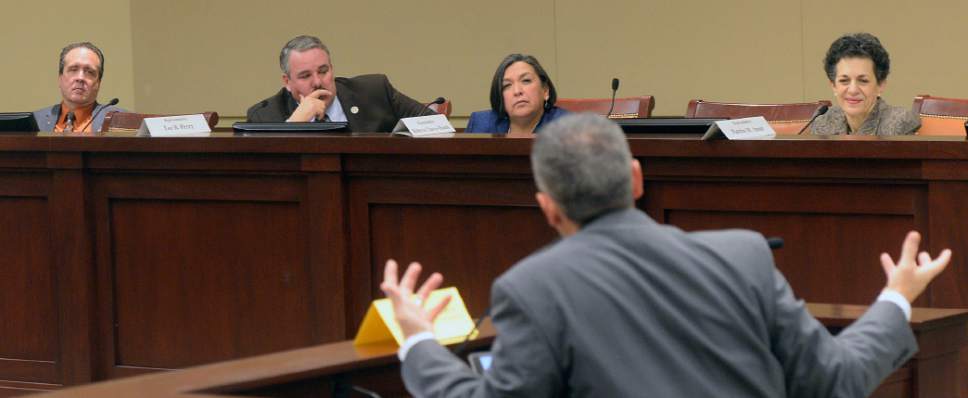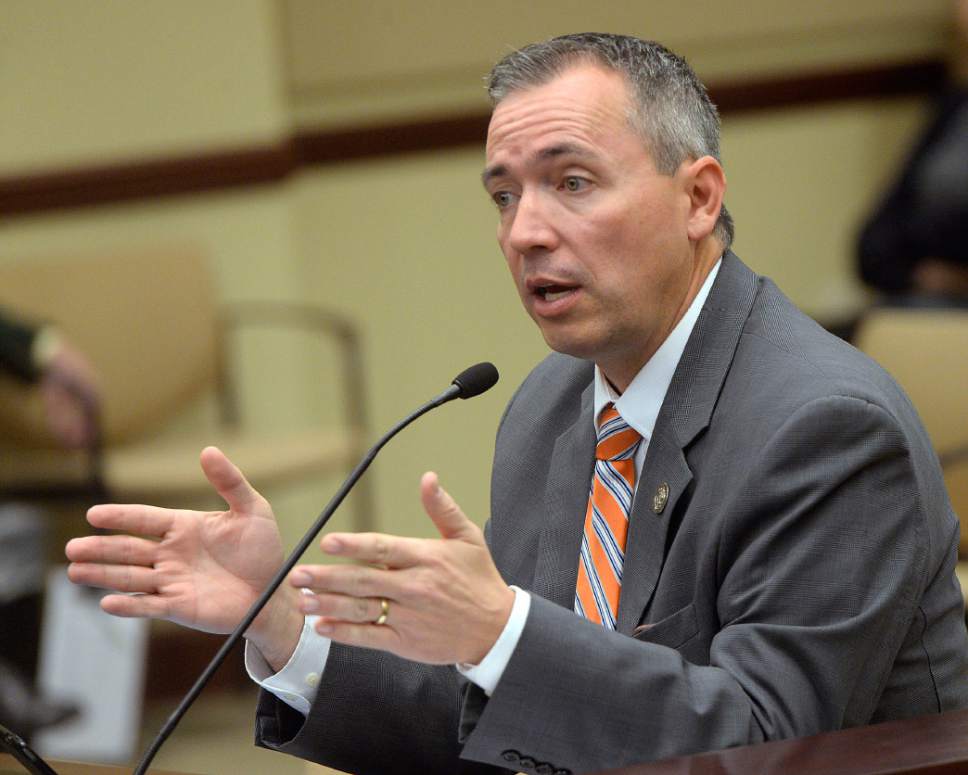This is an archived article that was published on sltrib.com in 2017, and information in the article may be outdated. It is provided only for personal research purposes and may not be reprinted.
Sponsors gutted a bill Thursday that originally sought to create runoff elections to prevent candidates from winning primaries by small pluralities. That came after the Utah Republican Party reneged on a deal that created the legislation.
Sen. Curt Bramble, R-Provo, sponsor of SB114, and his House sponsor, Rep. Dan McCay, R-Riverton, pulled provisions for the runoff election out of the bill, leaving only some changes about when candidates must file for office.
The House Government Operations Committee then passed the much-watered-down bill on an 8-1 vote, and sent it to the full House.
McCay told the committee the bill "has had a lot of fireworks. And like many big fireworks, will end with a very dark fate."
The Utah Republican Party last year vowed to drop its legal challenges of a new law, SB54, that changed how candidates may qualify for the ballot — through the traditional caucus-convention route or a new path, gathering signatures to directly go to a primary. But the GOP had a condition: the Legislature must find a way to prevent candidates in crowded primaries from winning the nomination with a small percentage of the vote.
So Bramble drafted the bill that would have created a runoff election for primaries that had more than four candidates, when no one captured at least 35 percent of the vote. After SB114 passed the Senate, the GOP announced it was dropping its legal challenges.
But Saturday, the party reversed course and decided to continue its appeals. Since the party reneged on its part of the deal, Bramble said he would drop the plurality provisions the GOP had sought.
Even watered down, SB114 still had some controversy on Thursday.
As rewritten, it would require Utahns who plan to seek signatures to qualify for the ballot to file their candidacy in the first week of January in an election year while those using the caucus-convention system don't have to file candidacy declarations until March, after the Legislature adjourns.
Under current law, those who hope to collect signatures could file any time between January and March.
Rep. Patrice Arent, D-Millcreek, complained the change benefits incumbents, allowing them to see early on if they may have a signature-gathering challenger and gives them time to do the same.
Several other members, such as McCay and Rep. Norm Thurston, R-Provo, said the change would allow legislators to better focus on public business during the session because they would not need to continually check to see if they have a signature-gathering opponent.





